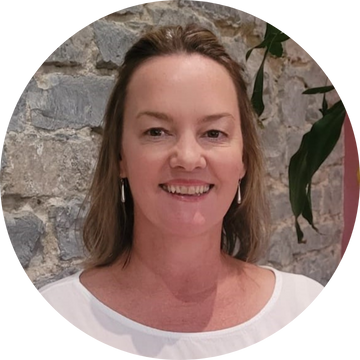
December and January can be hard. Really hard. The third Monday of January marks Blue Monday, the most depressing day of the year. Though these months are supposed to be a time of festivities, there are a number of factors that can contribute to this wintry sadness.
Christmas puts everything under a microscope. Family dynamics, money issues, loneliness. Despite this, there’s often an added expectation to be happy, connected and the pressure to put on a good show, even when things aren’t going so well.
With the New Year comes hope for new beginnings. We set resolutions and commit to change. Although well intentioned, we may tend to overestimate what we can reasonably do or sustain. When our best intentions slide after a few days, we consider our New Year’s resolutions a failure. For some, the voice of the inner critic becomes louder and causes them to spiral into a cycle of fear, hopelessness or despair.
Feeling blue isn’t the same as being depressed, but it can lead to it. Depression is fairly common, with one in ten people experiencing it in their lifetime. However, depression is a complex cocktail of emotions: anger, anxiety, fear, sadness, despair, grief, guilt and apathy. It may also be influenced by other factors, like our physical health, frustration at work and our sense of whether we have a good support network. These factors all feed into one another, perpetuating cyclical patterns that can drive us deeper into depression.
Begin the conversation on Blue Monday
Mental health challenges can occur all year round, but much-needed conversations are not occurring all year round. Blue Monday presents an opportunity to gently raise awareness of mental health issues in a world which often feels inclined to cover up deeper issues with a smile and a lie of, “I’m fine.” Being able to say how we really are, if only to a few close friends or a trusted professional, can help us feel more supported and less alone.
Though it may feel daunting for some, finding a way to express or talk about our feelings can be incredibly powerful. Be it through art, words or movement, we give our feelings form. Gently and gradually, we can become freer from the burdens and the tangled knots of thoughts and emotions. We can breathe deeply again. And we can heal.
Remember: you don’t have to tackle mental health issues alone. You might wish to use Blue Monday to start a meaningful conversation. Allow yourself the time and space to sit down with a loved one or a close friend to think and talk about your mental health.
Of course, friends and family may not always have the answers. But more importantly, we may not want their answers. Therapy offers a safe and supported space in which you can explore the inner landscape of your mind and emotions. Sometimes we don’t need fixing, we just need the space to be heard. If you would like to connect with an IMI counsellor or psychotherapist, please leave us a message here.

'%3e%3cg%20id='Group_40'%20data-name='Group%2040'%20clip-path='url(%23clip-path)'%3e%3cpath%20id='Path_45'%20data-name='Path%2045'%20d='M23.55,44H20.457c-.123-.028-.245-.066-.37-.083-.736-.1-1.481-.155-2.208-.3a21.577,21.577,0,0,1-13.2-8.085,21.482,21.482,0,0,1-4.459-16.6A20.745,20.745,0,0,1,5.335,7.652,21.54,21.54,0,0,1,25.058.2,20.789,20.789,0,0,1,36.271,5.248a21.634,21.634,0,0,1,7.392,12.913c.136.757.226,1.523.337,2.284v3.1c-.094.692-.167,1.387-.287,2.074A21.768,21.768,0,0,1,36.981,38.1a21.477,21.477,0,0,1-11.108,5.555c-.77.136-1.548.229-2.323.341M9.457,21.975c0,1.776-.039,3.553.011,5.327a7.607,7.607,0,0,0,1.453,4.542,7.129,7.129,0,0,0,5.74,2.691c1.931.078,3.865.113,5.8.084a54.556,54.556,0,0,0,6.3-.278,6.248,6.248,0,0,0,5.388-4.6,11.62,11.62,0,0,0,.441-3.692c-.018-3.407-.033-6.816-.133-10.221A6.349,6.349,0,0,0,33.06,12.1a7.045,7.045,0,0,0-5.8-2.651c-3.506-.057-7.014-.04-10.521,0a7.593,7.593,0,0,0-4.267,1.231,7.01,7.01,0,0,0-3,5.967c-.064,1.773-.013,3.551-.013,5.327'%20fill='%23fff'/%3e%3cpath%20id='Path_46'%20data-name='Path%2046'%20d='M21.981,11.566c1.971.066,3.932.089,5.887.21a4.372,4.372,0,0,1,4.338,4.356c.123,3.145.12,6.3.12,9.446a14.831,14.831,0,0,1-.267,3.11A4.215,4.215,0,0,1,27.911,32.2c-3.187.111-6.379.117-9.569.119a14.288,14.288,0,0,1-3.024-.261A4.206,4.206,0,0,1,11.8,27.916c-.112-3.175-.121-6.354-.121-9.532a14.84,14.84,0,0,1,.272-3.11,4.249,4.249,0,0,1,4.12-3.495c1.969-.119,3.945-.146,5.909-.213m6.487,10.447a6.466,6.466,0,1,0-6.475,6.448,6.429,6.429,0,0,0,6.475-6.448m.287-5.26a1.508,1.508,0,1,0-1.515-1.486,1.515,1.515,0,0,0,1.515,1.486'%20fill='%23fff'/%3e%3cpath%20id='Path_47'%20data-name='Path%2047'%20d='M21.983,26.2a4.211,4.211,0,1,1,4.229-4.169A4.193,4.193,0,0,1,21.983,26.2'%20fill='%23fff'/%3e%3c/g%3e%3c/g%3e%3crect%20id='Rectangle_1422'%20data-name='Rectangle%201422'%20width='46'%20height='46'%20fill='none'/%3e%3c/svg%3e)